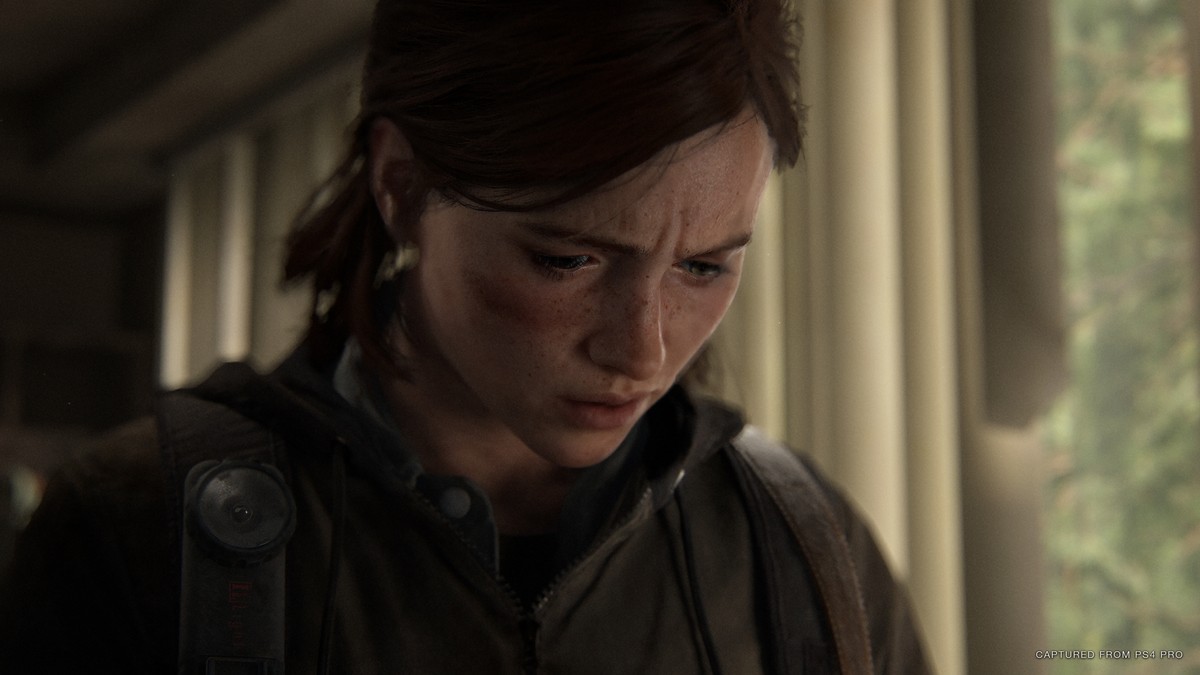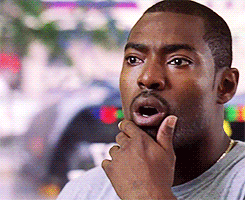.................But Ellie is restless, beset by cinematic flashes of PTSD. At a moment of happiness and peace, the scene dissolves as Ellie relives Joel's execution. Just like that, the pastoral bliss is shattered. Ellie can't live, can't move on, unless she does something to lay this trauma to rest. So she attempts to leave her new family before dawn, only to be confronted by Dina.
It is remarkable how quickly this part of the story unfolds given the leisurely pacing of other parts of The Last of Us Part 2. Dina goes from "come back to bed" to "I won't go through this again" in seconds. This was a trick employed in the first game as well: Joel had no time to come to terms with the Fireflies' sacrifice of Ellie. She was under the knife, and he had minutes to react. So all the things that would make sense of people to do in that situation, there was no time to consider. Joel's decision was "Fatherhood or the World" and the rest of the game was a murderous sprint.
But the trick doesn't work well here because the characters and the relationship we've seen to this point makes the scene ring false. Dina, who has been established throughout the story as a survivor of things as bad or worse than Ellie has seen, has no role to play here other than the "spurned wife". The conversation where they try and work through what's going on with Ellie? It doesn't happen. Instead the only tacks Dina appears to take with Ellie are, "You have an obligation to this family" and "Hey, have you considered how hard it is for me to deal with you?" Unsurprisingly, Ellie walks out. It's a disservice to both characters and it compounds the problem of motivation that undercuts every part of Ellie's story.
Ellie trails Abby and Lev to Santa Barbara, where they've been abducted by some kind of gang or militia. This new crop of enemies isn't given much characterization. They mostly serve as cannon fodder that Ellie has to carve her way through on her way to a final scene with Abby. Compared to the careful work of establishing the history of the WLF and Seraphite factions in Seattle, the Santa Barbara setting just feels like an extra level stocked with enemies you really won't feel bad killing. You even get an automatic silenced weapon, a suppressed SMG, just so you can finally let loose. The story is utterly bleak by this point, but here's an action-packed finale if you want one.
Eventually Ellie rescues Abby and Lev on a desolate execution ground. The two women are about to make their escape from the prison compound when Ellie demands that they settle things once and for all. Abby, who has completely let go of her conflict with Ellie, shrugs off the challenge until Ellie hold a knife to Lev's throat. Then the two women spend the next several minutes beating the absolute shit out of each other. Ellie finally wins the fight, and starts drowning Abby.
At which point Ellie gets a flashback of Joel. Not the moment of his death that's haunted Ellie and served as her motivation throughout the game. This time she sees Joel smiling at her, sitting on his porch back on a night in Jackson. It mirrors a dream Abby has of her father. In The Last of Us Part 2, closure begins when a woman gets a vision of paternal affection. It immediately causes Ellie to let Abby go.
The game ends shortly after with Ellie's return to the now-abandoned farmhouse she shared with Dina. And as she sits in the ruins of her life, we learn what happened in the last conversation Joel and Ellie had together.
It turns out, they reconciled! When we see the full scene, we learn Ellie visited Joel the night before he died and admitted that she would never be able to forgive Joel for the choice he made to "rescue" her from the Fireflies… but that she'd like to work on moving past it, and see if their relationship could be repaired.
It's the second critical flashback we've received about Joel and Ellie, and each one—far from shedding light on Ellie's decisions—makes Ellie's choice less convincing. They are structured like explanatory reveals but each one cuts against the actions we observe throughout the game.
One of the sources of narrative suspense early in the game is whether or not Ellie knew what Joel had done at the end of the first game. It's pretty obvious from the start of the game that she did, and that it was the reason other characters were picking up on tension between her and Joel. But it's made explicit through flashbacks of happier times, where we see how Ellie's nagging doubts about Joel's version of events eventually lead to a confrontation at the old Firefly base where she forces Joel to admit the truth about his decision to kill the Fireflies and "save" her. It opened a huge rift in their relationship.
Which means, from the start of this game, Ellie not only knew why a bunch of assassins had shown up to kill Joel, but she also knew that Joel had it coming. She knew that Joel's death, while awful and painful to witness, was something approaching justice… and yet she led all her friends to assist her in a mass reprisal-killing. It's a source of discomfort the game never explores. With the exception of a couple conversations where she's evasive with Dina and Jessie, she's never forced to weigh what she knows about Joel against the things she's doing to avenge him. The implication, given all the flashbacks of good and bad times with Joel, is that what's really driving Ellie is guilt and shame about the fact that their relationship ended on bad terms.
But now, in the finale, we learn that she had already achieved a kind of closure with her relationship with Joel. He hadn't died thinking she hated him. Their last conversation was full of tension but also love and commitment
That final conversation with a departed loved one that we all wish we got a chance to have? Ellie actually had it. Abby may have denied Ellie and Joel a chance to restore their relationship with guitar lessons and movie nights, but they'd already come to terms with their profound conflicts and their enduring love for one another.
So what was all of this actually about? Ellie has wrecked her life and ruined all her relationships for a dubious revenge, in spite of repeated acts of mercy from the person she was hellbent on killing. She's killed a number of people who were trying, in their own ways, to escape or survive other cycles of escalating reprisals and slaughter. But was this, in any way, tragic? Not really.
Ellie was sad and angry for reasons that were sympathetic in the immediate aftermath of the trauma of Joel's death, but by the time she's trying to drown Abby in the Pacific, she's spent half the game shambling toward a bleak fate that could have been avoided with a modicum of introspection or awareness. Why Ellie was incapable of that, why it took losing everything for her to see past her despair at witnessing Joel's death, why she was willing to choose evil rather than acceptance, might have made for an interesting character study. But The Last of Us Part 2 instead serves up a restatement of its basic premise as an endgame revelation. At the start we suspect that she's furious at the death of a beloved father figure with whom she had a difficult relationship and by the end we're sure of it.
Which ends up making Ellie, in the last analysis, a very typical video game protagonist. The information that's revealed about her history with Joel and her understanding of Abby's motivations paint her not as a tragic antihero, but as an outright monster. Of course, the massively padded-out length of The Last of Us Part 2 requires Ellie to be a monster, because to pause and confront these inner conflicts would bring the sneaking, shooting, and throat-cutting to a screeching halt. After Abby makes her peace with letting Ellie live, the last sequence we play from her perspective is a quiet scene where she and Lev call someone on the radio. There's no war left for her to fight, and so there's nothing left for the player to do with her. It falls to Ellie to give us one last adventure. In the process she becomes just another violent cipher.
You can view the full article here:

Where 'The Last of Us Part 2' Ending Goes Wrong
Spoiler warning: We get into the grim and gritty details of 'The Last of Us Part 2' finale.
Thoughts?


